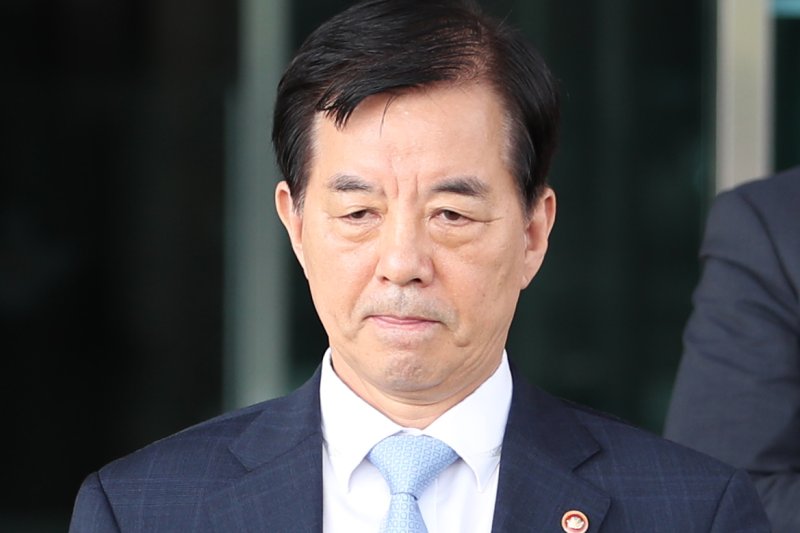South Korean Defense Minister Han Min-koo signed a military intelligence sharing deal with Japan on Wednesday, a development that has drawn different reactions. Photo by Yonhap/UPI
SEOUL, Nov. 23 (UPI) -- South Korea and Japan signed a military intelligence sharing agreement on Wednesday to better defend against North Korea threats.
But the agreement was met with a mixed response, ranging from approval by the commander of U.S. Forces Korea to concern on the part of China's foreign ministry.
The signing of the Japan-Korea GSOMIA took place only 27 days after negotiations in 2016, South Korean television network KBS reported.
The agreement was met with some opposition among South Korea's opposition lawmakers, who have said they would request Defense Minister Han Min-koo, who signed the deal with Japan's Ambassador to South Korea Yasumasa Nagamine, to step down for expediting a deal without more public support.
According to a recently conducted Gallup Korea survey, 31 percent of South Koreans are in favor of the deal, while 59 percent said they do not want to strengthen military cooperation with Japan.
The deal allows the two countries to share military secrets, including intelligence on North Korea's developing nuclear weapons program and ballistic missiles.
South Korean President Park Geun-hye approved the deal on Tuesday, a day ahead of the signing.
China's foreign ministry issued a guarded response to the deal on Wednesday while raising concerns the deal could "intensify the conflict on the Korean peninsula."
Foreign ministry spokesman Geng Shuang said China is "watching the reports" on the deal and warned the "strengthening of military cooperation...intensifies confrontation on the Korean peninsula and heightens insecurity."
Geng also said the deal is "not in line with the common interests of countries in the region."
USFK Commander Gen. Vincent Brooks issued a different response, welcoming the agreement as a "courageous decision."
"This agreement will promote greater collaboration and enhance the readiness of the combined [South Korea] and U.S. forces to respond to the unacceptable threat posed by North Korea," Brooks said in a statement.















